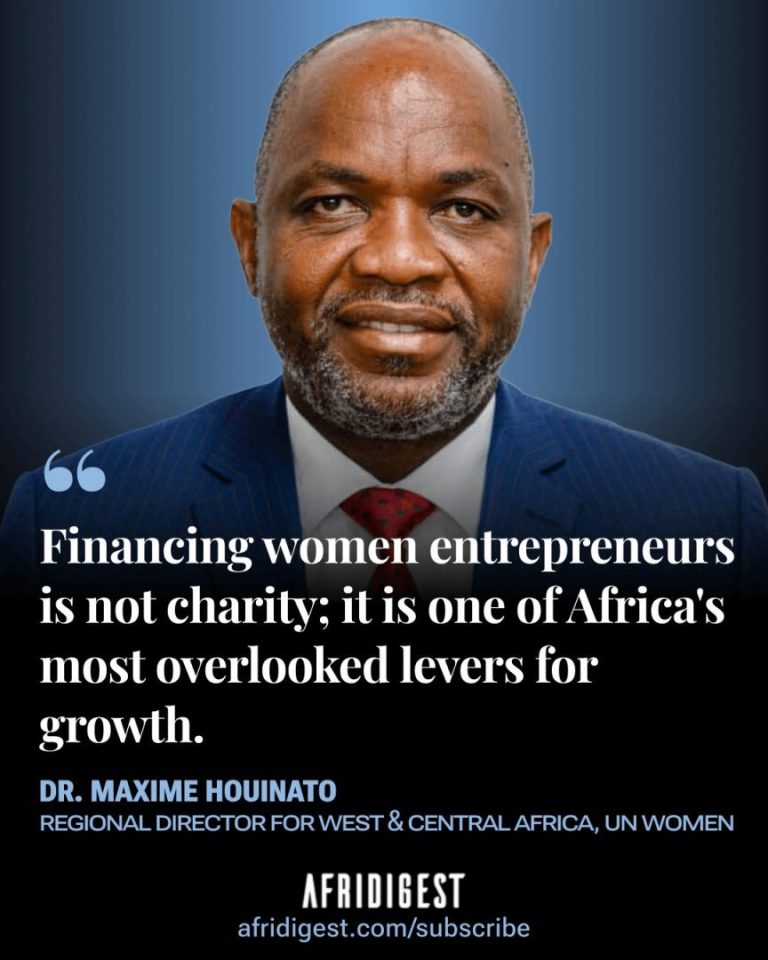Supporting women entrepreneurs isn’t goodwill — it’s good business.
“Financing women entrepreneurs is not charity; it is one of Africa’s most overlooked levers for growth.”

That’s Dr Maxime Houinato, Regional Director for West & Central Africa at UN Women, reframing how we think about women’s economic empowerment on the continent.
The numbers make his case compelling:
- Africa has the highest rate of women entrepreneurs globally — one in four women starts or manages a business.
- They make up nearly 60% of the continent’s self-employed workforce and contribute around 13% of Africa’s total GDP.
- And here’s the kicker: women typically reinvest up to 90% of their income back into education, health, and nutrition for their families and communities, compared to just 35-40% for men.
Yet despite this outsized impact, women face a staggering $42 billion financing gap across business value chains, with $15.6 billion in agriculture alone.
Even when they do access credit, it’s typically on smaller and more expensive terms than their male counterparts.
Dr. Houinato argues the challenge goes deeper than access to capital:
“Women’s economic participation is still treated as an add-on rather than embedded in the core architecture of banking, trade, supply chains, and investment.”
The solution? Moving beyond glossy initiatives toward systemic change in Africa’s business community.
He point to West Africa’s first gender bond and programs like Ellevate — both by Ecobank — as successful institutional examples to emulate.
“Africa’s growth story will not be written by pilot projects or policy papers alone. It will be shaped by companies willing to hardwire inclusion,” Houinato emphasizes.
This means redesigning risk models, expanding deal networks beyond male-dominated circles, and ensuring women entrepreneurs can compete fairly for commercial opportunities including procurement and financing.
Take agriculture — the continent’s largest employer.
Women farmers face productivity gaps not because they’re less capable, but because they face systemic inequalities in access to inputs, markets, and technology. The FAO estimates that equal access to resources could increase the continent’s agriculture yields by up to 30%.
The business case is clear. And there’s similar impact to be realized across various sectors. The question is: who will act on it?
What’s your take?
- Do you agree that supporting women entrepreneurs is one of Africa’s highest-ROI development strategies? Why or why not?
- What would it take to truly “hardwire inclusion” into Africa’s financial systems rather than treating women’s economic participation as an afterthought?
- Beyond financial institutions, which other sectors urgently need to embed women’s economic participation into their core business models?





Share: